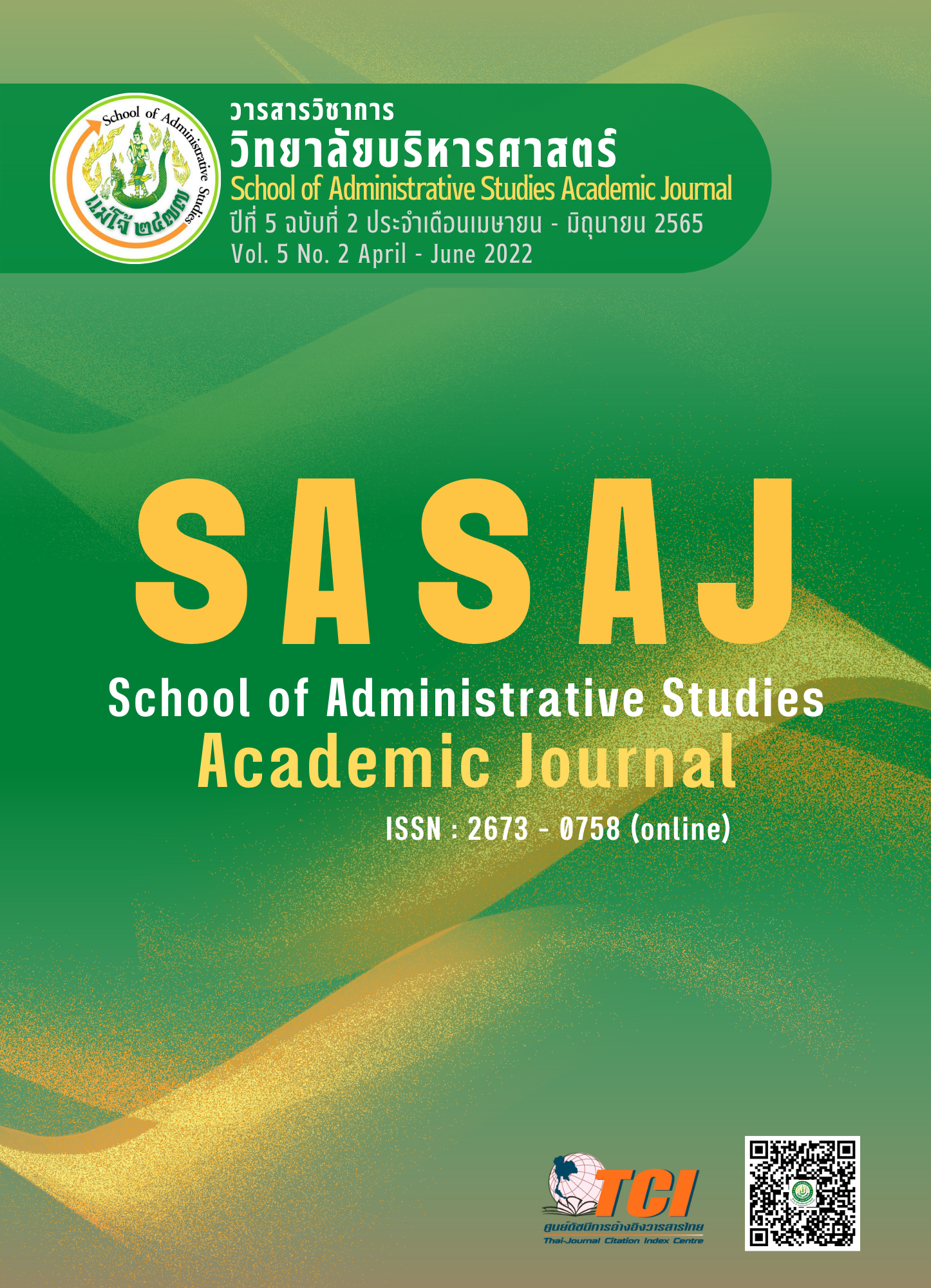ความคิดทางการเมืองในหนังสือการ์ตูนเรื่อง "ผ่าพิภพไททัน"
Main Article Content
บทคัดย่อ
งานวิจัยนี้ มีวัตถุประสงค์ 1) เพื่อศึกษาและวิเคราะห์ความคิดทางการเมืองที่ปรากฏผ่านตัวละครในหนังสือการ์ตูน ผ่าพิภพไททัน 2) เพื่อวิเคราะห์ว่าผู้เขียนสนับสนุนความคิดทางการเมืองแบบใดบ้าง โดยงานวิจัยนี้ใช้วิธีการศึกษาโดยการวิจัยเอกสาร จากนั้นวิเคราะห์ เชิงเนื้อหาผ่านหนังสือการ์ตูน “ผ่าพิภพไททัน” เพื่อมองหาความคิดทางการเมืองหรืออุดมการณ์ทางการเมืองที่สอดแทรกอยู่ในเนื้อหา
ผลการวิจัยพบว่า 1) ในส่วนความคิดทางการเมืองที่ปรากฎในหนังสือการ์ตูน ผ่าพิภพไททัน มีอุดมการณ์ทางการเมืองที่สำคัญดังนี้ เสรีนิยม สตรีนิยม สังคมนิยม อนุรักษ์นิยม ฟาสซิสต์ และรัฐประหาร ผู้เขียนได้ส่งเสริมให้ผู้อ่านมีความคิดทางการเมืองที่หลากหลาย ผ่าน “เอเลน” ตัวละครเอกและพรรคพวกซึ่งเป็นหัวใจหลักในการดำเนินเรื่อง 2) ผู้เขียนได้สนับสนุนแนวคิดพื้นฐานของความคิดทางการเมือง ที่เน้นความเป็นปัจเจกของบุคคลในการตัดสินใจที่จะกระทำตามที่ใจตนเองปรารถนา ไปจนถึงเสรีภาพในเชิงลบ ที่ปลอดจากการคุกคามและพร้อมที่จะต่อสู้และปกป้องเสรีภาพต่อการคุกคามนั้น และการที่รัฐมีบทบาทน้อย ซึ่งสอดคล้องกับแนวความคิดเสรีนิยมคลาสสิค อีกทั้งการส่งเสริมบทบาทในด้านสิทธิของสตรีให้เท่าเทียมกับเพศชายทั้งในด้านการประกอบอาชีพและการศึกษาหาความรู้ในการพัฒนาตนเองตามแนวความคิดสตรีนิยม สายเสรีนิยม และแนวความคิดสังคมนิยมของผู้เขียนตั้งอยู่บนพื้นฐานของหลักภารดรภาพ ผ่านความสำนึกผิดในสิ่งทำให้เกิดความเกียจชังระหว่างเชื้อชาติ แม้คนที่เคยเป็นศัตรูกันและต่างฝ่ายต่างสู้รบจนบาดเจ็บล้มตายอีกทั้งสูญเสียไปมากมาย สุดท้ายกลับร่วมกันเป็นผู้เรียกร้องสันติภาพของโลกใบนี้
Article Details

อนุญาตภายใต้เงื่อนไข Creative Commons Attribution-NonCommercial-NoDerivatives 4.0 International License.
ลิขสิทธิ์
เอกสารอ้างอิง
จรูญ สุภาพ. (2527). สารานุกรมรัฐศาสตร์. พิมพ์ครั้งที่ 3. กรุงเทพฯ: ไทยวัฒนาพานิช.
ชวาลิน เพ่งบุญ, นพวรรณ เมืองแก้ว, อธิปัตย์ นิตย์นรา, และ พิชัย แก้วบุตร. (2563). สตรีนิยมผ่านตัวละครเพศหญิง: กรณีศึกษา “ไป๋อิ๋นน่า หมู่บ้านริมฝั่งน้ำ” พระราชนิพนธ์แปลจาก สมเด็จพระเทพรัตนราชสุดา ฯ สยามบรมราชกุมาร. วารสารมนุษยศาสตร์และสังคมศาสตร์ มหาวิทยาลัยพะเยา, 8(1), 180-204.
ชัยอนันต์ สมุทวณิช. (2536). ปัญหาการพัฒนาทางการเมืองไทย. พิมพ์ครั้งที่ 2. กรุงเทพฯ: สำนักพิมพ์แห่งจุฬาลงกรณ์มหาวิทยาลัย.
บรรณกร จันทรทิณ. (2563). ความคิดทางการเมืองในหนังสือการ์ตูนเรื่อง “วันพีช” ของเออิจิโระโอดะ. วารสารรัฐศาสตร์ปริทรรศน์ มหาวิทยาลัยเกษตรศาสตร์, 7(1), 36-54.
สมเกียรติ วันทะนะ. (2551). อุดมการณ์ทางการเมืองร่วมสมัย. พิมพ์ครั้งที่ 2. กรุงเทพฯ: อักษรข้าวสวย.
สมเกียรติ วันทะนะ. (2558). ระบอบประชาธิปไตยเปรียบเทียบ. กรุงเทพฯ: สำนักพิมพ์สมาคมรัฐศาสตร์แห่งมหาวิทยาลัยเกษตรศาสตร์.
ฮาจิเมะ อิสายะมะ. (2538). ผ่าพิภพไททัน Attack on Titan (เล่มที่ 1-34). กรุงเทพฯ: วิบูลย์ กิจคอมิกส์.
Janowitz, M. (1997). Military Institutions and Coercion in The Developing Nations. Chicago: University of Chicago Press.


